
1/ New app ‘Wanda’ offers travellers real-time health information
ITM’s travel clinic is what our Institute is mainly known for in Belgium. Almost 20,000 people visited our travel clinic for travel advice and vaccinations in 2018 and our travel medicine website reaches about 450,000 hits a year. As more people carry a smartphone, we developed an app that focuses on travel health and keeps travellers informed about the health risks at their destination. Wanda is user-friendly and contains up-to-date information that’s also on our website. Most of the information is also available when a phone is not connected to the internet and we can send targeted messages in case an outbreak occurs. Wanda is free, and available in Dutch, French and English. Alongside the app, our travel medicine website also got a makeover.
Dr Patrick Soentjens and Dr Mieke Croughs from the travel clinic have been the brains behind the app. “Wanda is easily accessible and the information is to the point. This way, we hope to reach even more travellers”, says Dr Soentjens. Dr Croughs adds: “When abroad, people don’t always know where to find reliable information. Wanda enables us to accompany people during their trip.”
Wanda provides general information that applies to everyone. Before their trip, travellers can consult the app, for example to check which vaccinations they need to get. When something happens during the trip, they can consult the app to find out what to do next. It’s then up to the traveller to take any further steps necessary.
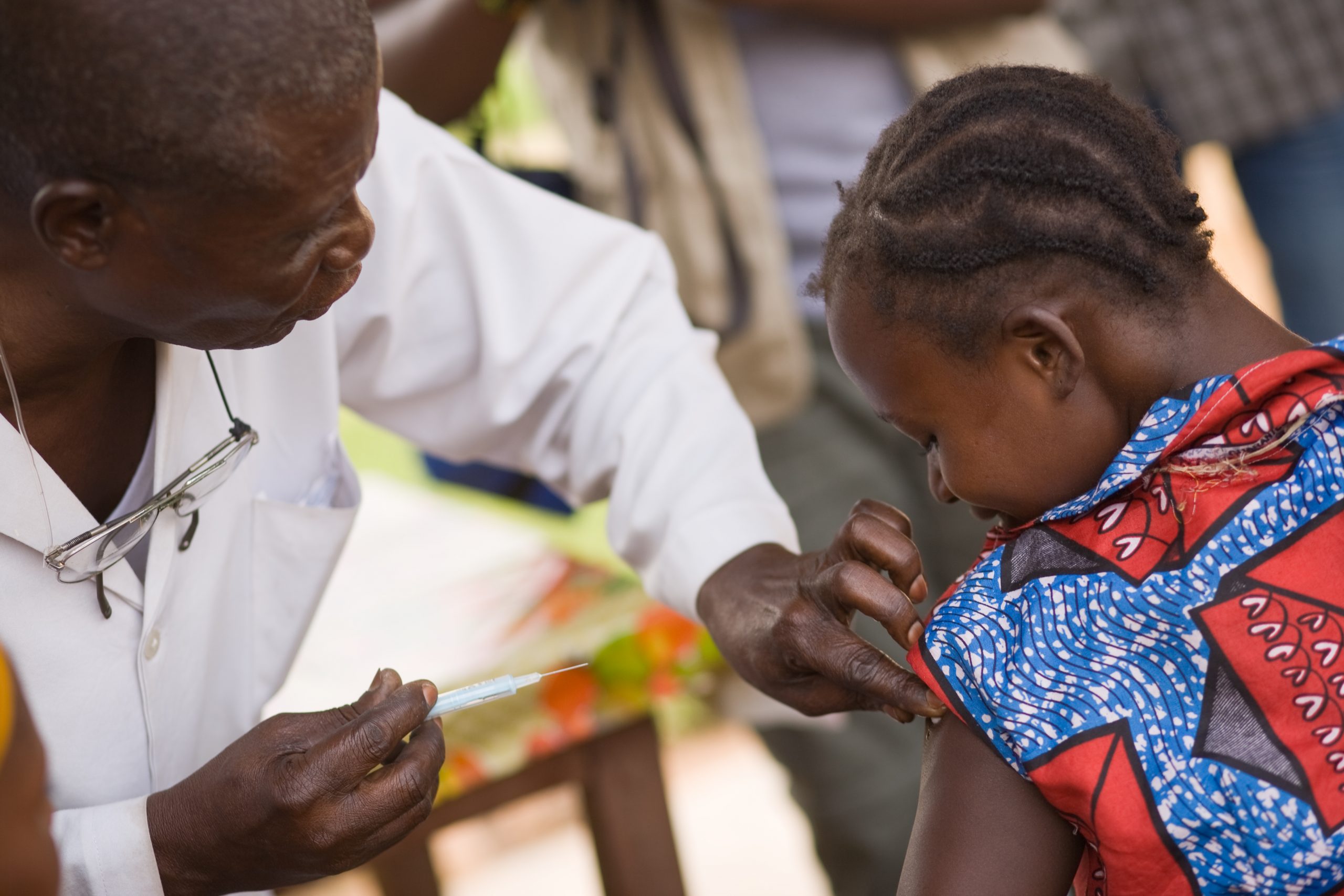
2/ Fighting non-Typhi Salmonella on all fronts
In sub-Saharan Africa, Salmonella is the most common cause of invasive and highly fatal bacterial infections such as bloodstream infections. Especially young children and people with a weakened immune system are at risk. Invasive non-Typhi Salmonella (iNTS) infections have a higher case fatality rate than malaria and are estimated to cause more than 75,000 deaths per year. Adequate antibiotic treatment is challenging in resource-limited settings and antibiotic resistance is on the rise. Therefore prevention and the development of a vaccine are crucial to contain non-Typhi salmonella.
ITM researchers coordinated a study describing a novel Salmonella Typhimurium line, part of the non-Typhi Salmonella family, which originated in the DRC and which has unseen levels of antibiotic resistance, hampering effective treatment. According to scientists from ITM, Institut Nationale de Recherche Biomedicale in the DRC, Cambridge University and the Wellcome Sanger Institute in the UK, this is the first time Salmonella Typhimurium causing bloodstream infections has emerged as ‘Extensively Drug Resistant (XDR)’. This means that the options to treat severe infections by XDR strains are becoming scarce. The study was unique as researchers were bringing together ten years of surveillance on bloodstream infections in hospitals in the DRC and in-depth biological research on the genome of the bacteria for which they applied cutting edge technologies.
In addition, ITM researchers are taking part in a research project for the clinical development of an innovative vaccine against invasive non-Typhi Salmonella in sub-Saharan Africa. The Vacc-iNTS consortium consists of 12 partners from eight different countries including four iNTS disease-endemic countries, namely Kenya, Malawi, Burkina Faso and Ghana. Together they aim to advance the rapid development of a vaccine, which is urgently required due to difficult diagnosis and increasing antibiotic resistance.
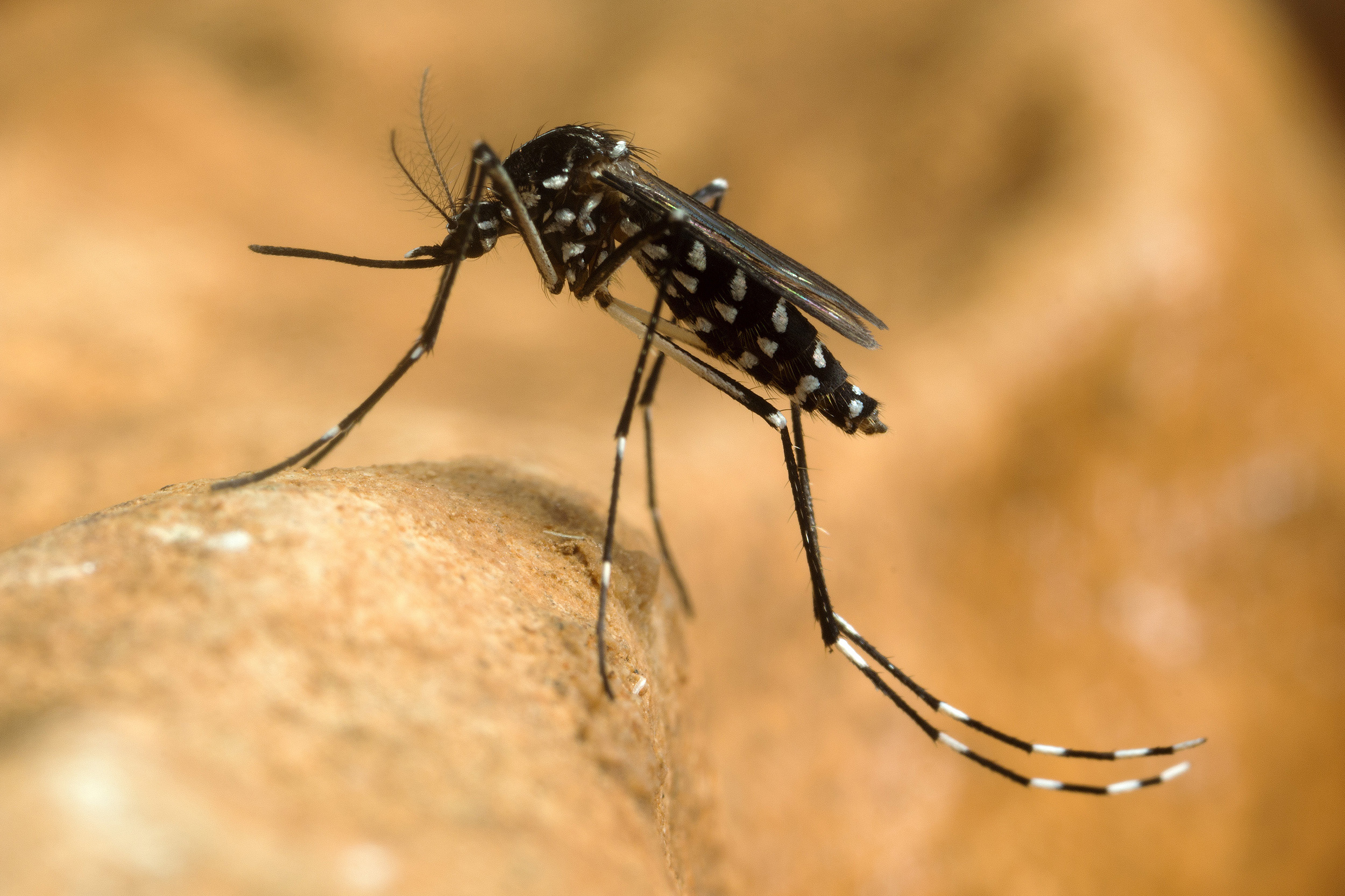
3/ Taking a global approach towards exotic mosquito-borne diseases
The burden of mosquito-borne diseases such as malaria, dengue and Zika worldwide is immense. Over the years, ITM scientists have focused on surveillance, control and multidisciplinary research in the field of vectors including mosquitoes. This encompasses vector ecology, vector control and vector-borne outbreaks to combat these diseases. In 2019 two main mosquito-monitoring projects were in the spotlight: MEMO in Belgium and EntoCAP in Nepal with each project mutually benefitting from expertise and knowledge exchange.
The Monitoring Exotic Mosquitoes in Belgium (MEMO) is the project, started in 2017, that monitors the introduction of exotic mosquitoes in Belgium. Together with their partners, ITM is screening up to 21 at-risk places throughout Belgium where exotic mosquitoes are most likely to enter the country. In 2019, the species was once again found at various parking lots along the motorways in our country: the monitoring activities indicated that tiger mosquitoes like to ‘hitch a ride’ to Belgium via motorways from places where they have settled, such as Germany and France. The project is financed by the Flemish, Walloon and Brussels authorities and the FPS Public Health, Safety of the Food Chain Safety and Environment within the framework of the National Environment and Health Action Plan (NEHAP).
EntoCAP, funded by the Bill & Melinda Gates Foundation and partnered by ITM and the National Health Research Council in Nepal, aims to enhance the entomological capacity for combating vector-borne diseases in Nepal. With the large dengue outbreak in Nepal in 2019 with more than 10,000 cases reported, this study is proving very relevant. Technically, EntoCAP will develop entomological infrastructure and implement an on-site DNA barcoding for monitoring mosquitoes in Nepal. In March 2019, 30 health professionals including medical doctors were given entomological training in Nepal and 270 more will follow in 2020.
Through the joint entomological training of health science students and medical professionals, the further aim is to spread our expertise on vector-borne diseases into the public health sector.
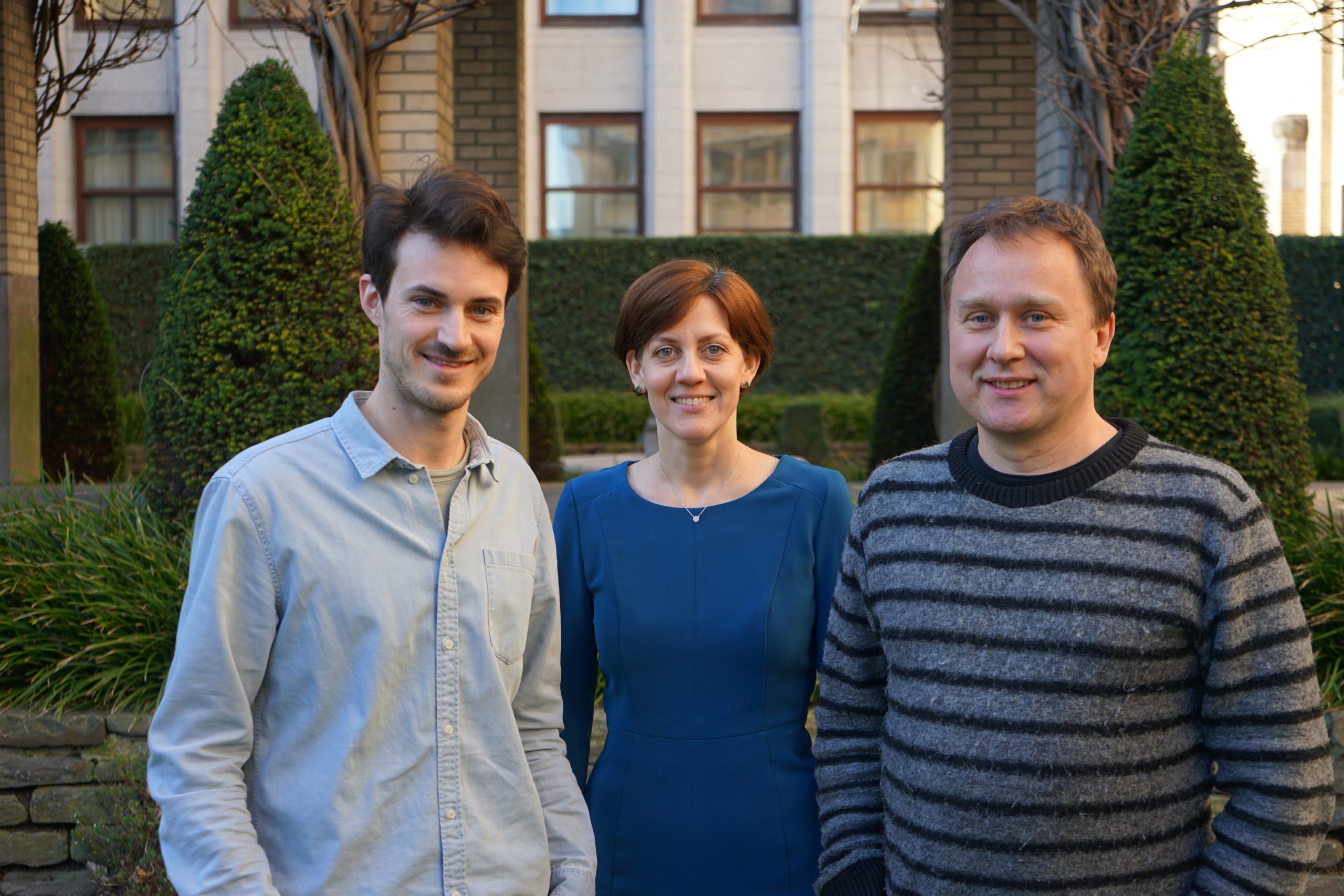
4/ Arrivals and departures
In the past year, ITM has said farewell to devoted retiring professors and has welcomed new scientists who are bringing fresh perspectives and extensive tropical disease expertise into the Institute.
2019 marks the appointment of three new full professors. Professor Koen Vercauteren as new Head of Unit of Clinical Virology has taken the lead in setting up this new unit. As the new Head of Unit of Maternal and Reproductive Health, Professor Lenka Beňová is focusing on labour, childbirth and postnatal care in Africa, and on improving the understanding of reproductive and maternal health. Professor Eric Florence, who has been leading the HIV/STI Clinic for a long time, also became the Head of the Unit of HIV Care in 2019.
We would also like to express our warm appreciation to the retiring dedicated professors: Bruno Gryseels, our former Director of 24 years, Guido Vanham, Head of the Unit of Virology, and Katrien Fransen who was Medical Unit Head of the HIV/STD Reference Laboratory.

5/ ITM recommends international standards for genome sequencing technology in tuberculosis
In 2019, a group of ITM and international researchers described the advantages and risks of modern genome sequencing technology in the detection of Mycobacterium tuberculosis, the bacterium that causes tuberculosis (TB). The researchers offered a set of recommendations for international standardisation in clinical care and public health.
The diagnosis, treatment and tracking of TB are currently done through various techniques. These could all be replaced by whole genome sequencing (WGS). However, there is a risk that with no clear consensus and lack of international standards, the widespread use of WGS technology can lead to data and processes without harmonisation, comparability and validation.
ITM’s research on tuberculosis is world-renowned. Our Institute has the largest public collection of TB strains for research. Tuberculosis is a bacterial infection that kills around 1.6 million people each year, making it one of the top ten causes of death worldwide.

6/ Optimising PrEP care in Belgium and beyond
The impact of an HIV infection on an individual’s life, family and society is enormous. Pre-exposure prophylaxis or PrEP, is very effective in preventing HIV infection by using antiviral drugs. Since 2012 it has been introduced in many countries, including in Belgium in 2017, to strengthen HIV prevention measures. ITM is partnering on two PrEP studies.
Firstly, in 2019, ITM and the University of Antwerp set up the FWO-funded Promise project that will run until 2022. Over the next years, researchers will study how PrEP rollout can be optimised for maximum impact on HIV and sexual health. Uptake and use of PrEP in Belgium will depend on how individuals and certain communities engage with this new prevention measure: namely men having sex with men (MSM) and people with migrant backgrounds. Furthermore, ITM commits to informing the development of approaches for the self-management of PrEP and to involving family physicians to help simplify the PrEP care model.
Secondly, the HIV epidemic in many African countries is far from over and new prevention strategies such as PrEP are desperately needed. Researchers from ITM, four African countries and France are collaborating on the CohMSM-PrEP project: ‘Access to PrEP for MSM: Acceptability and Feasibility in Community-based Clinics in West Africa’. The project objective is to gain better insight into the added value of PrEP for HIV prevention in Africa, and focus on the acceptability and feasibility of PrEP for gay men in community-based clinics in West Africa. A total of 500 gay men using PrEP in Burkina Faso, Ivory Coast, Mali and Togo are being followed-up during the period of 2017-2020.
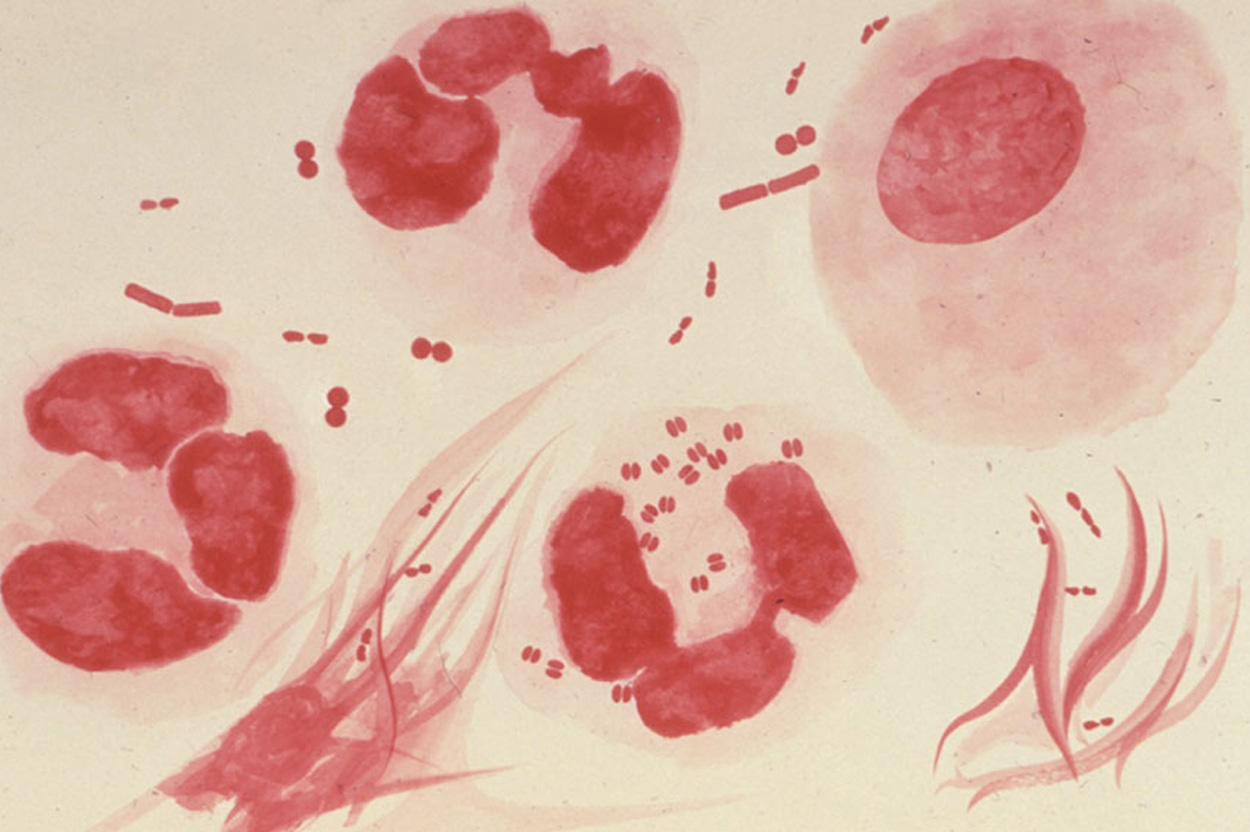
7/ Battling antibiotic resistance for gonorrhoea
Gonorrhoea is transmitted during sex (including oral sex) without a condom and can lead to serious complications, such as infertility in women and men. The causative agent of gonorrhoea has developed resistance to every antibiotic used against it and could become untreatable. ITM is currently running two projects that carry out research into antibiotic resistance in Neisseria gonorrhoeae.
The Preventing Resistance in Gonorrhoea (PReGo) project aims to reduce the chance of antibiotic resistance emerging in gonorrhoea, by using an antibiotic-free mouthwash before and after oral sexual activity. We will assess if the mouthwash can be used to treat and prevent pharyngeal gonorrhoea and other sexually transmitted diseases.
ITM has also developed a gonorrhoea morbidostat: an in-vitro culture system to better understand how gonorrhoea can acquire antibiotic resistance so rapidly.
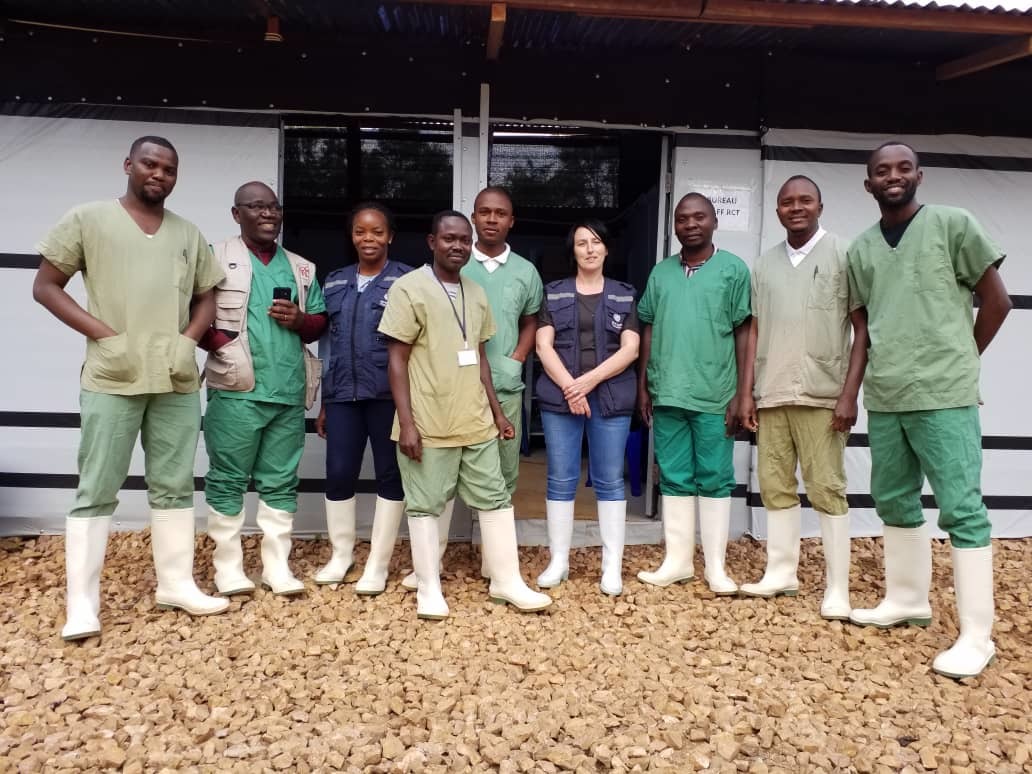
8/ ITM’s Outbreak Research Team in action!
Despite some unrest in the country, ITM was able to put to good use its extensive epidemic expertise in the DRC in 2019. This included the much-publicised Ebola outbreak in Eastern Congo that started in August 2018 but proved difficult to contain. ITM’s multidisciplinary Outbreak Research Team (ORT) supported colleagues from our Congolese partner, Institut Nationale de Recherche Biomédicale (INRB), who together with international partners, are fighting the Ebola epidemic. ITM and INRB also confirmed an outbreak of chikungunya in DRC last year. Together the institutes started multidisciplinary research to map out the epidemic.
In terms of Ebola, the presence of armed groups and the distrust of the local population towards official authorities made aid interventions complicated. ITM staff continued their research nonetheless, supporting two specific studies in 2019 in Eastern Congo. Firstly, scientists from ITM and INRB started a pilot study to examine bacterial co-infections in Ebola patients. The researchers looked at the prevalence of invasive bacterial infections and whether they play a role in the high mortality rates despite the administration of specific Ebola drugs. During the study, blood cultures were taken from Ebola patients in treatment centres in Beni and Mangina in Eastern Congo. The blood cultures were analysed in a bacteriology lab in Beni that was set up especially for the study.
The Institute was also actively involved in the PALM study in which four treatments against Ebola were tested. Within this, ITM researchers provided advice and organised Good Clinical Practice trainings. The study was sponsored by INRB and the National Institute of Allergy and Infectious Diseases of the US National Institutes of Health.
For the chikungunya epidemic, ITM and INRB scientists created local diagnostic capacity in the INRB virology lab in Kinshasa for both human and mosquito samples. The research shows that especially the tiger mosquito (Aedesalbopictus) was the catalyst of the outbreak. Health facilities were not fully prepared for a chikungunya outbreak and it is now crucial to further investigate patients’ and health professionals’ perceptions of chikungunya, as well as to pursue testing strategies that can be rolled out more widely to deal more effectively with future outbreaks of the virus.
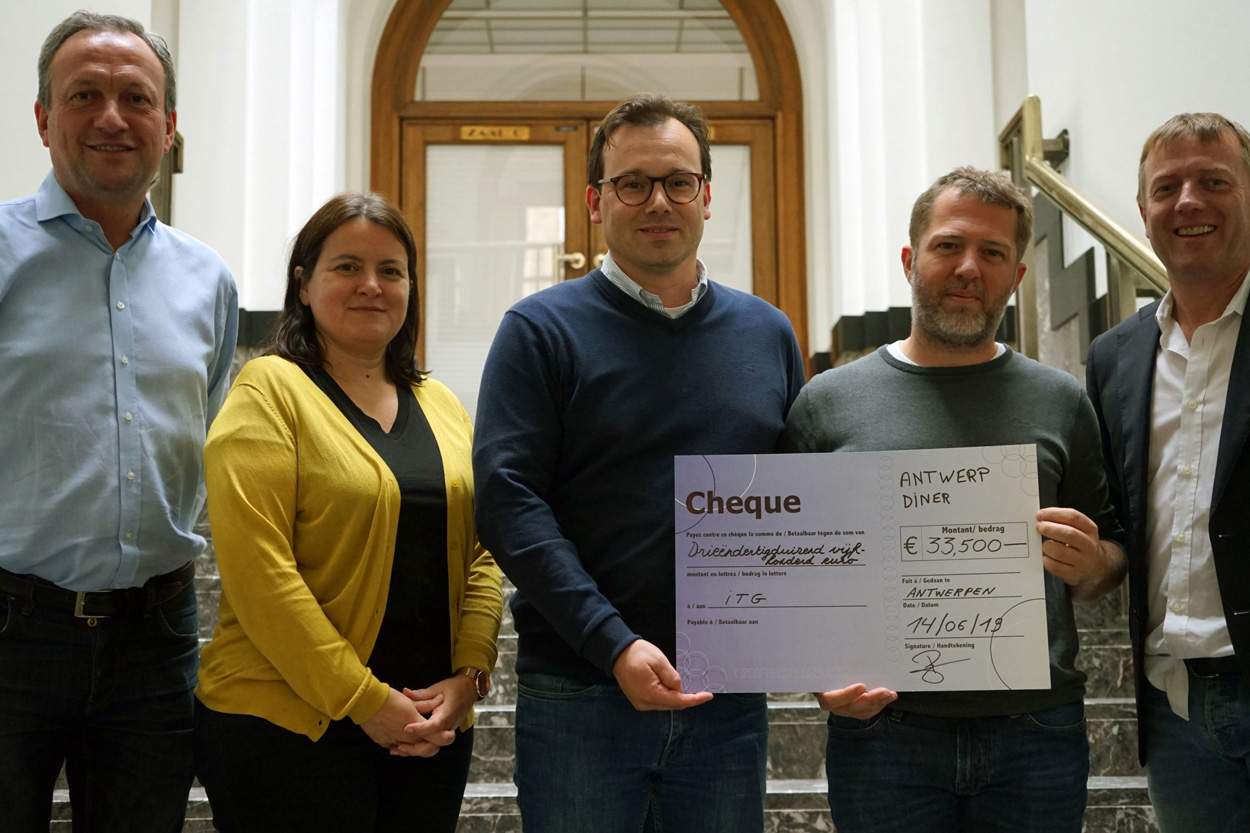
9/ Researching for a definitive HIV virus cure
The yearly HIV charity event Antwerp Diner handed out a check of €33,500 to ITM. With this generous contribution, ITM researchers are intensifying the hunt for hidden HIV reservoirs, which is the main obstacle to finding a definitive cure for the HIV virus. Our scientists are trying to discover more about parts of the HIV virus that are hiding in the body cells of people taking antiretrovirals. This study is part of worldwide research into the HIV reservoir.

10/ Digital tools in the service of healthcare
In a rapidly changing world, using digital technologies can help improve general health care. ITM is supporting two digital innovation projects in Africa.
In addition to two existing courses on Primary Health Care and Management of Sexual and Reproductive Health Services, our researchers participated in the development of a new e-learning course for medical staff in Guinea in 2019. This 12-week digital course on Research Methods in French fills a gap, especially for medical students in need of these methods for writing their thesis. The course was developed jointly by ITM and our Guinean partner institution Centre National de Formation et de Recherche en Santé Rurale (CNFRSR) in Maferinyah, who are now fully in charge of training healthcare professionals. The project is funded by the Belgian development agency (Enabel) and the DGD.
ITM also participates in the Afya-Tek project. Afya-Tek is a consortium of partners across sectors funded by the Fondation Botnar. This particular project is a digitally enabled, responsive health system initiative in Tanzania that will work to link several health services (field healthcare workers, clinics, pharmacies) to create a biometrically enabled continuum of care. ITM is monitoring and evaluating the integration of the digital tools into the health care system.
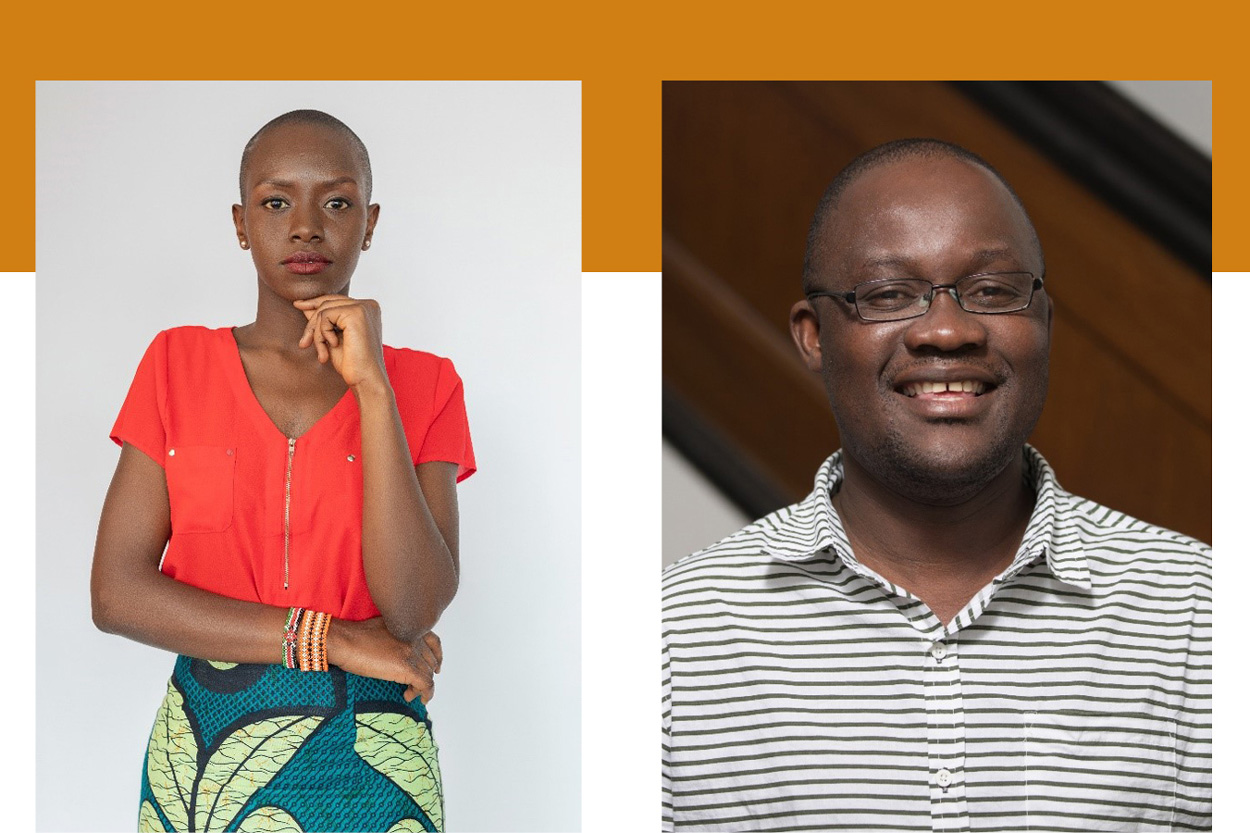
11/ Two talented journalists participate in our Journalist-in-Residence programme
In 2019, we ran the sixth edition of our ‘Journalist-in-Residence programme’. It offers journalists from Africa, Asia and Latin America the opportunity to immerse themselves in the fields of tropical medicine and international health. This year we welcomed as residents Rhoda Odhiambo from Kenya, a multimedia health and science journalist working for the BBC, and the South Africa- based Munyaradzi Makoni, who works as a freelance journalist for SciDev.Net. While Rhoda concentrated on HIV, PrEP and resistance to tuberculosis medicines, Munyaradzi mainly focused on chikungunya. The initiative is part of ITM’s scientific capacity-building programme in developing countries and is financed by the DGD.
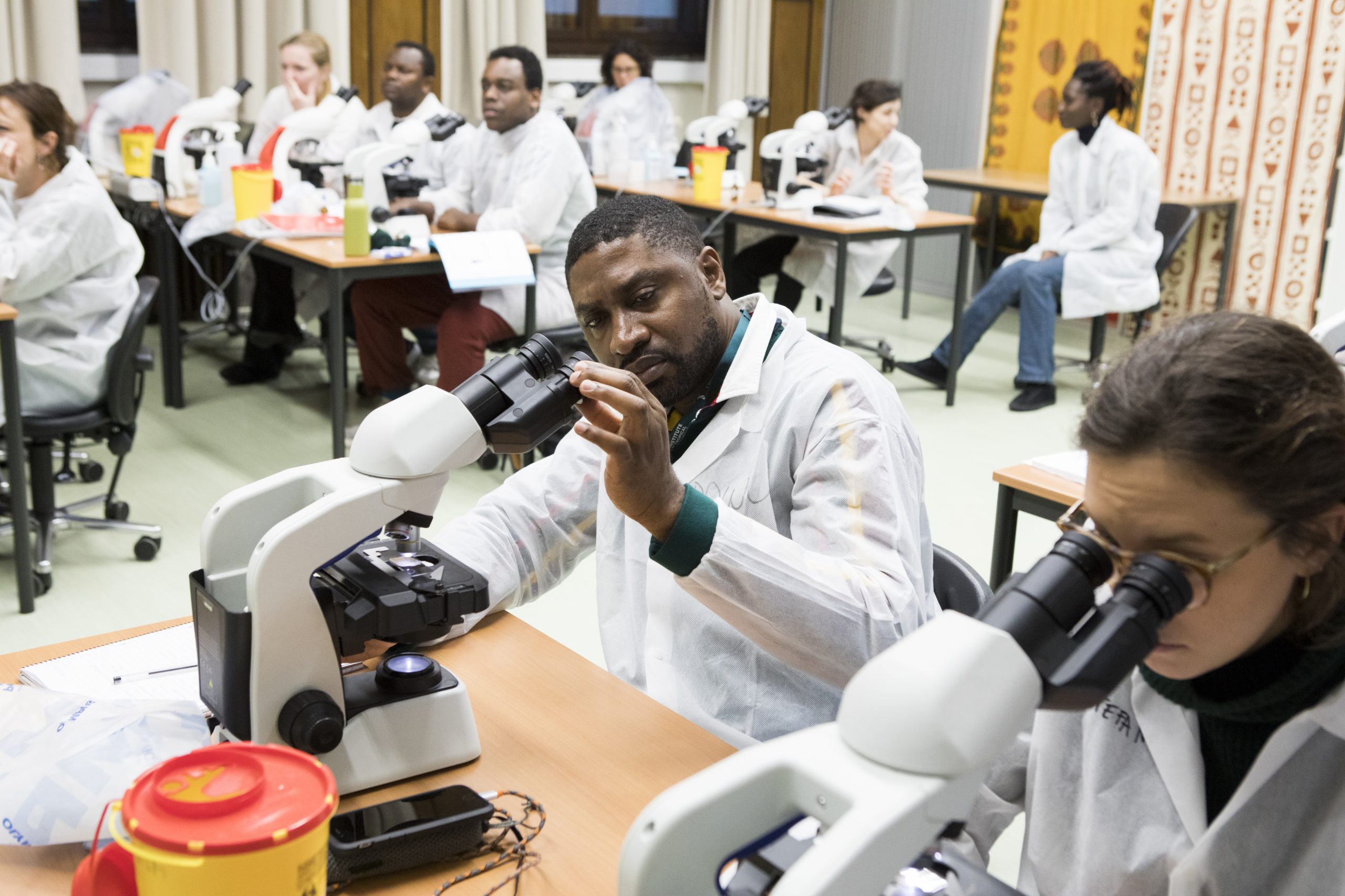
12/ ITM launches new master’s and short courses
In 2019, ITM proudly confirmed the availability of new courses for the 2020-2021 academic year. Firstly, December brought the accreditation of a new Master of Science in Tropical Medicine, and secondly we developed and put on offer a range of short courses in the public health domain.
For the new master, we received the NVAO official seal of approval (NVAO is the Accreditation Organisation of Flanders and the Netherlands) in December. It draws from ITM’s expertise in the three disciplines of public health, clinical and biomedical sciences and offers students a hands-on and tailor-made experience. This expands ITM’s Master of Science programmes to three from 2020 on – in Public Health, in Tropical Animal Health and now in Tropical Medicine.
2019 also brought 15 new short courses in public health that will be available from 2020 on. These include courses on new public health research domains such as ‘Outbreak Investigation and Research’, and ‘Non-Communicable Diseases’. All short courses have been adjusted to run for full-time three-week periods.
Many ITM short courses in the three disciplines of public health, tropical animal health and tropical medicine are now also available as stand-alone modules outside of Master’s studies. Indeed, any of these short courses can be taken as a part of any of the three Master’s programmes if they fit the individual student trajectory.
The new Master’s and short courses illustrate the increased flexibility that runs across the whole of ITM’s educational offer with emphasis on a tailor-made and student-centred curriculum. By being an ‘open global campus’, ITM fosters international learning, based on the intense field experience of our lecturers and the worldwide institutional partner and alumni networks.
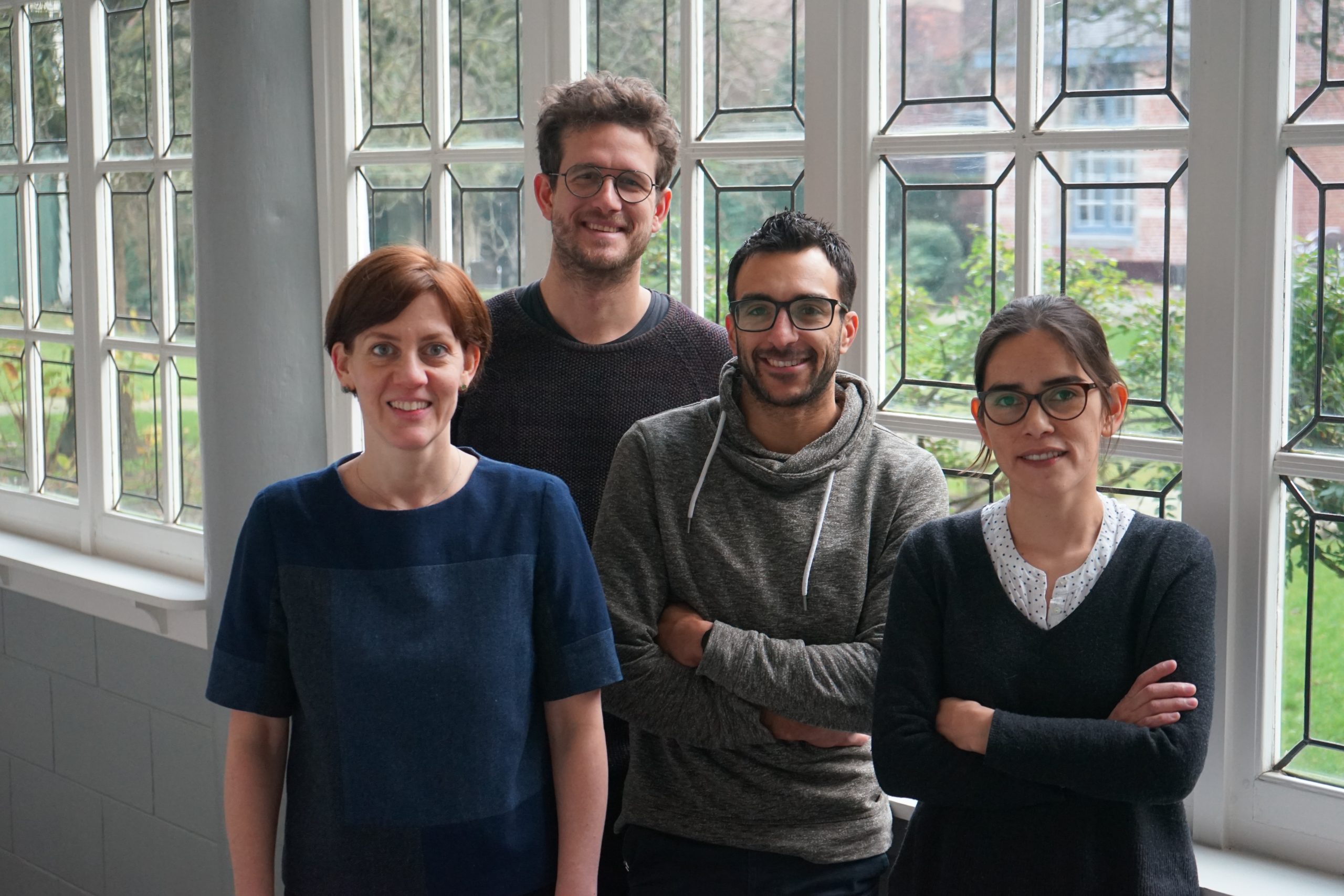
13/ FWO stimulates fundamental ITM research projects
Four ITM scientists (pictured) received a postdoctoral fellowships from the Research Foundation – Flanders (FWO), which promotes fundamental and strategic basic research. Two of them focus on the Leishmania virus, a disease that is spread by the bites of certain types of sand flies. Marlene Jara is hypothesising that quiescent Leishmania parasites may be insensitive to widely used Leishmania treatments and Frederik Van den Broeck (KU Leuven/ITM) is using evolutionary timescales of the Leishmania virus to investigate the recent evolution of its parasite host Leishmania. Lenka Beňová is examining barriers in the provision of good quality postnatal care in sub-Saharan Africa and Dimitri Renmans (UAntwerp/ITM) is aiming to develop a theory of performance-based financing.
Additionally, postdoctoral researcher Bart Cuypers received an FWO research grant. Katlijn De Meulenaere (UAntwerp/ITM) and Sigrid D’haese (VUB/ITM) started their FWO strategic doctoral scholarships and Bieke Tack began her aspirant grant (KU Leuven/ITM).
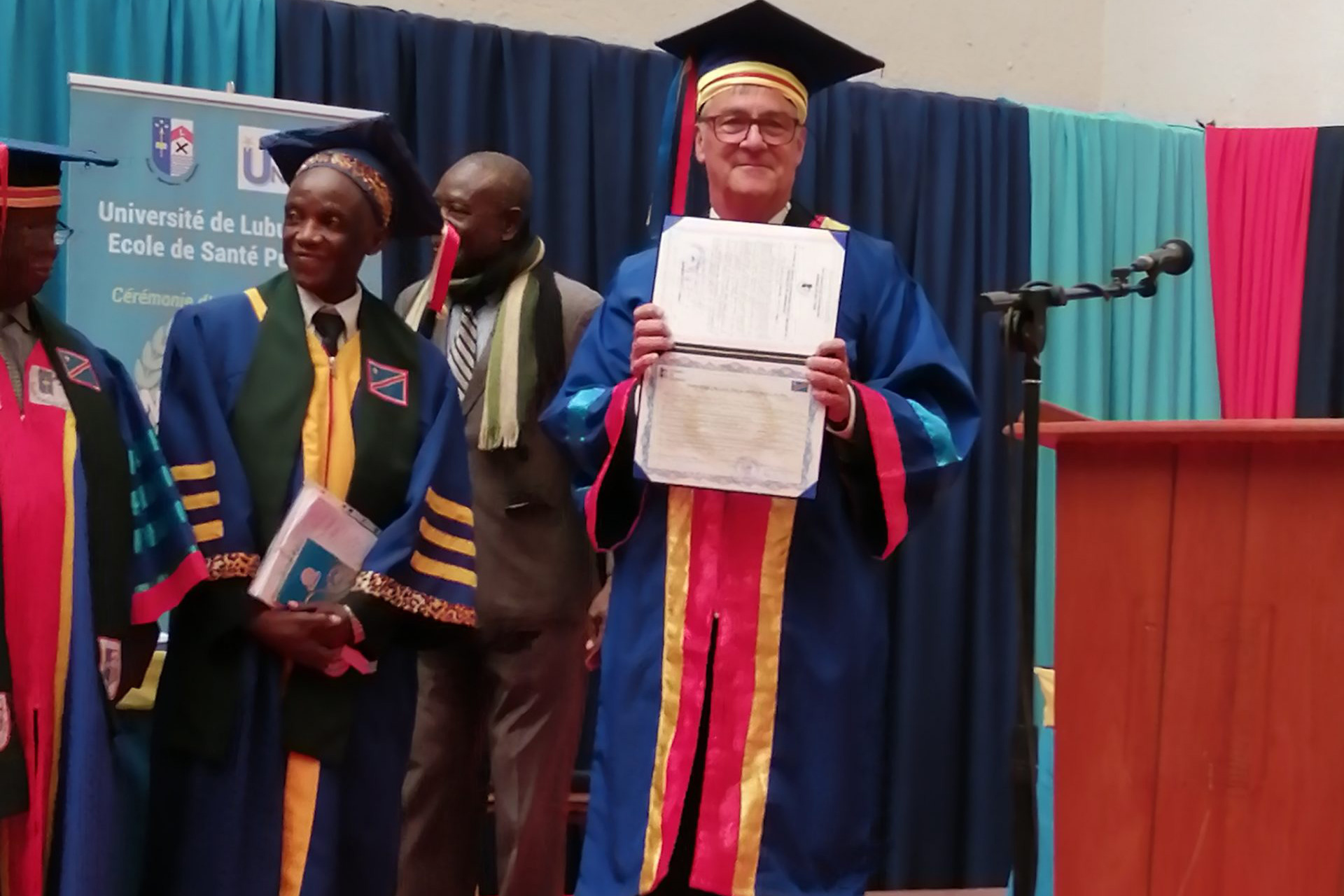
14/ Honorary degree for Bart Criel
Professor Bart Criel, expert in health financing and health equity, was awarded an honorary doctorate from the University of Lubumbashi in the DRC, an institutional partner of ITM. He received the honor for his extensive experience in the field of education and for his scientific support to the School of Public Health. Bart Criel was one of the driving forces behind the development of the University’s Master of Public Health programme. “This title implies a certain responsibility and I will therefore continue to work relentlessly for Lubumbashi and DRC,” he said.
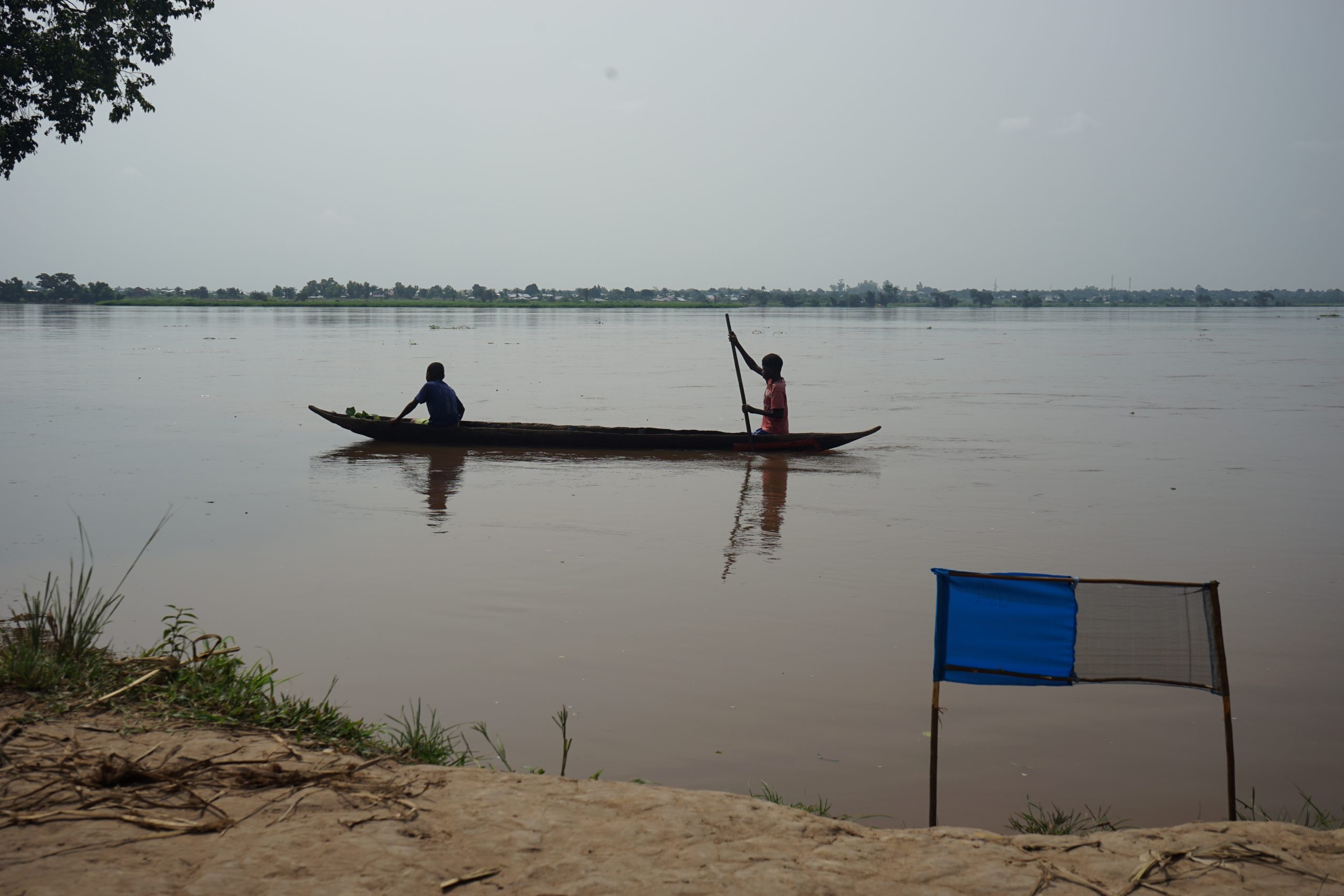
15/ Making progress towards sleeping sickness elimination
Neglected diseases are often overshadowed by ‘more important’ infectious diseases and receive little attention in the field of research and disease control. ITM is doing multidisciplinary research on these diseases with sleeping sickness being one of them. Sleeping sickness, which caused the same terror a hundred years ago as AIDS and Ebola today, remains active in the DRC.
ITM is conducting field research into new ways to combat the disease. The Institute is also coordinating a large-scale international project to eliminate sleeping sickness by 2030, with funding from the Belgian Development Cooperation and the Bill & Melinda Gates Foundation that started in 2017. Congolese, Belgian and international partners are working closely together to achieve this goal. The researchers focus on innovative and technological methods to detect and confirm sleeping sickness, but also on strengthening health systems. The efforts for the sleeping sickness project are a positive catalyst for other health initiatives. In 2019, the Congolese Ministry of Public Health put sleeping sickness on the agenda in the French-speaking countries of Africa. The Belgian Minister for Development Cooperation Alexander De Croo also signed a Memorandum of Understanding for placing more attention on neglected diseases in the DRC. In September, the Congolese President, Félix Tshisekedi, visited the Institute where the sleeping sickness project was extensively discussed.
The Institute developed the most widely used detection test decades ago and still produces it today, but is also developing new tests that are better suited to the changed context. ITM has an expert role in the field of diagnostics for neglected diseases and is filling an important gap in this respect.
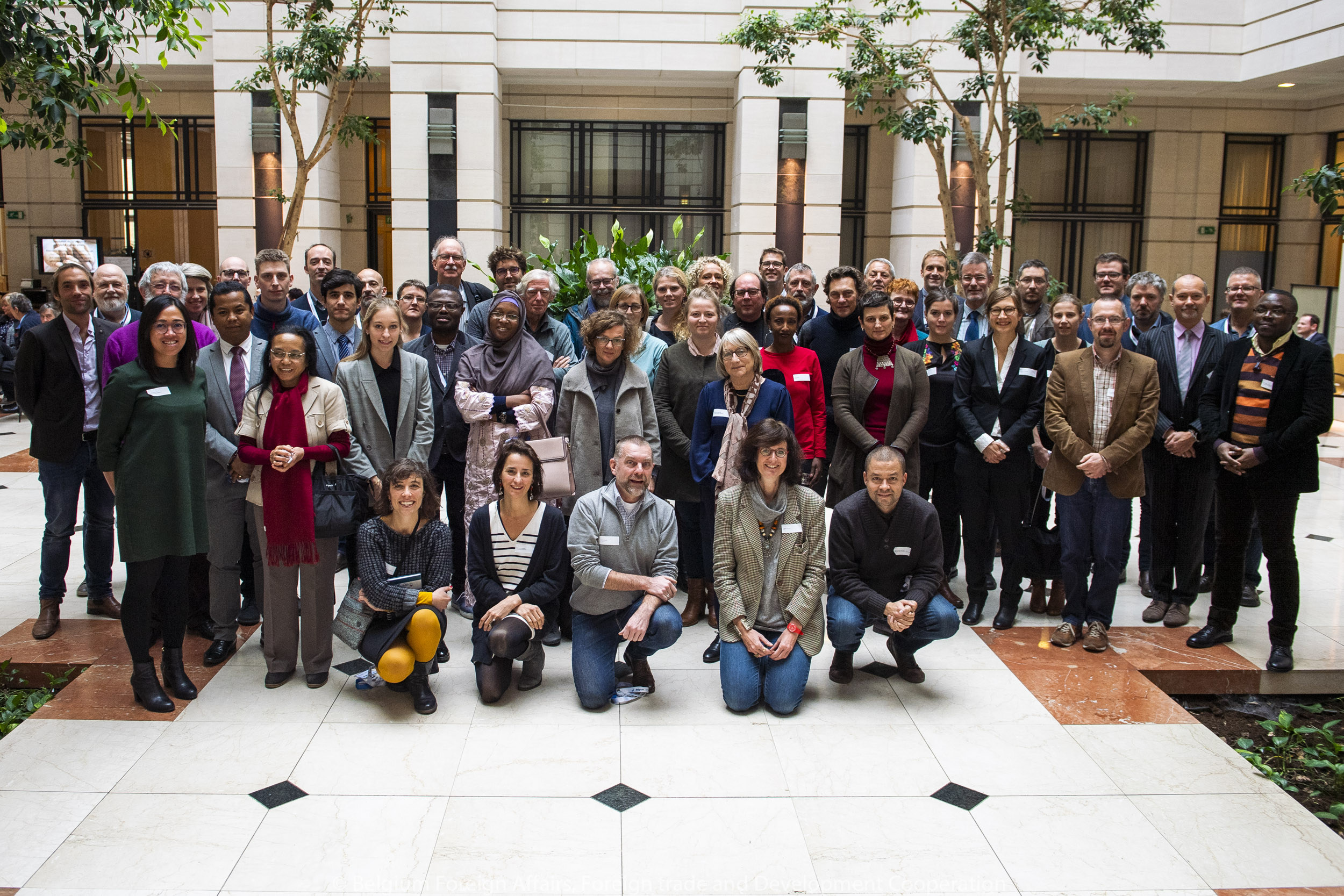
16/ ITM scientists contribute to call for global access to quality medicines
Every person has the right to receive safe, good-quality medical products – but all too often, this isn’t the case, as substandard and falsified medicines are highly prevalent in many low- and middle-income countries. ITM researchers are the co-authors of the ‘Oxford Statement, A Call for Global Access to Quality-Assured Medical Products’, whereby more than 150 researchers, advocates and policymakers from around the world issued a global call for urgent action. The paper appeared in The Lancet Global Health in November 2019. For many years, ITM scientists have devoted themselves to prioritising universal access to quality-assured medicines.
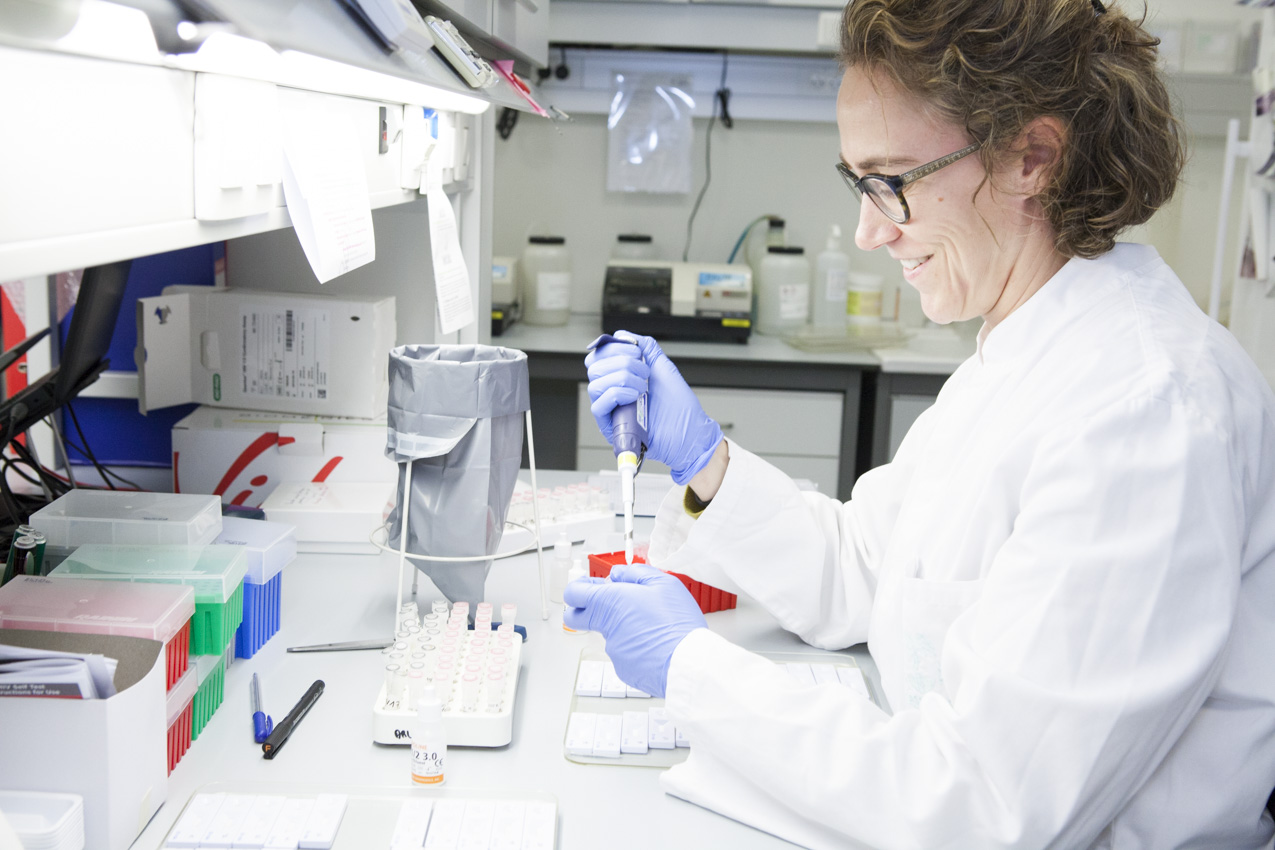
17/ The Clinical Reference Laboratory is born!
The Department of Clinical Sciences inaugurated the Clinical Reference Laboratory (KRL) in December 2019, which entailed the merger of the former Central Laboratory for Clinical Biology and the HIV/STD Reference Laboratory.
This comprehensive laboratory has three focal tasks: firstly, service delivery to the ITM and other Belgian clinics as well as to partners in the South with capacity building. Secondly, acting as national reference laboratories for infectious and tropical diseases, HIV and STDs and as World Health Organization collaborating centre for HIV/syphilis diagnostics and laboratory support. Its third task is research, in collaboration with other ITM units and external partners, or own research aimed at improving diagnostics for infectious and tropical diseases.
The new KRL is part of the Tropical Laboratory Medicine Research Group and will create a performant and sustainable environment to ensure flexibility and personal development, increase collaboration and knowledge sharing among experts and optimise the available laboratory infrastructure.

18/ SCUBY: Scaling up diabetes and hypertension care
The ‘SCUBY’ project aims to improve access to quality care for vulnerable people with diabetes and hypertension in Belgium, Slovenia and Cambodia, three countries with different levels of prosperity and health care systems. SCUBY learns from best practices: researchers will compare the approach of each of the three countries and see how they can learn from each other. Based on the results, they will draw up a roadmap for improving standard care for these health problems. ITM and the University of Antwerp are working closely together in this European research project.
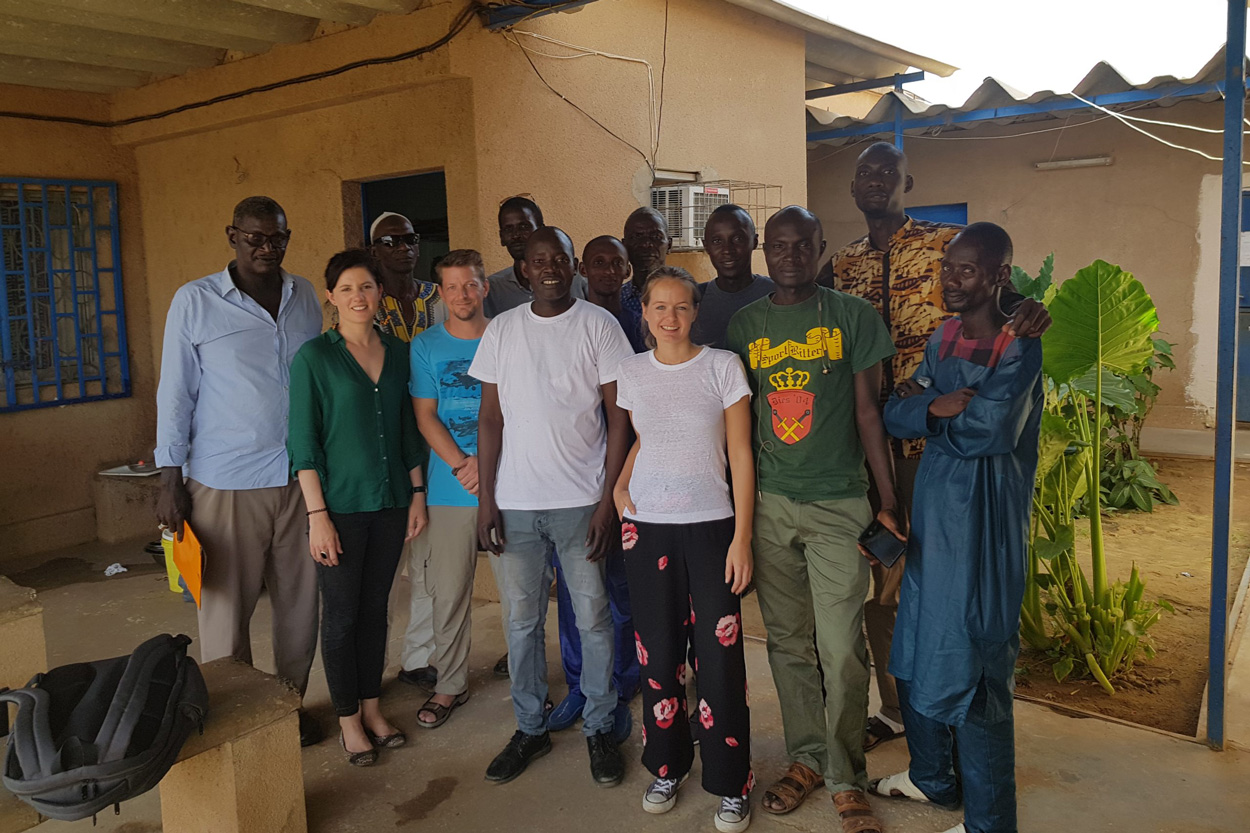
19/ Investigating improved treatment methods and vaccination
Our Clinical Trials Unit (CTU) coordinated and supported 11 trials in patients or healthy volunteers around the world in 2019. Focal points of investigation have been improving rabies and tick-borne encephalitis vaccination regimes, a schistosomiasis treatment trial involving over 700 Senegalese children and work on the Ebola virus disease including piloting clinical bacteriology care response and providing clinical training support to Ebola crisis sites in the DRC.
Since 2007, the unit has been mandated to develop and carry out clinical trials in Belgium and with its partners around the globe. In these trials, our scientists investigate new or improved treatment methods or vaccination schedules for infectious diseases. In addition, the CTU participates in several national and international consortia and provides clinical project management support; data management support and statistical support related to the set-up, conduct and reporting of trials with special focus on the challenges met in resource-constrained settings. This includes advocacy for universally appropriate standards in global collaborative clinical research.
Want to know more
about us?
Institute of Tropical Medicine in Antwerp
Nationalestraat 155, 2000 Antwerp, Belgium
www.itg.be - communicatie@itg.be
Institute of Tropical Medicine in Antwerp
Nationalestraat 155, 2000 Antwerp, Belgium
www.itg.be - communicatie@itg.be


